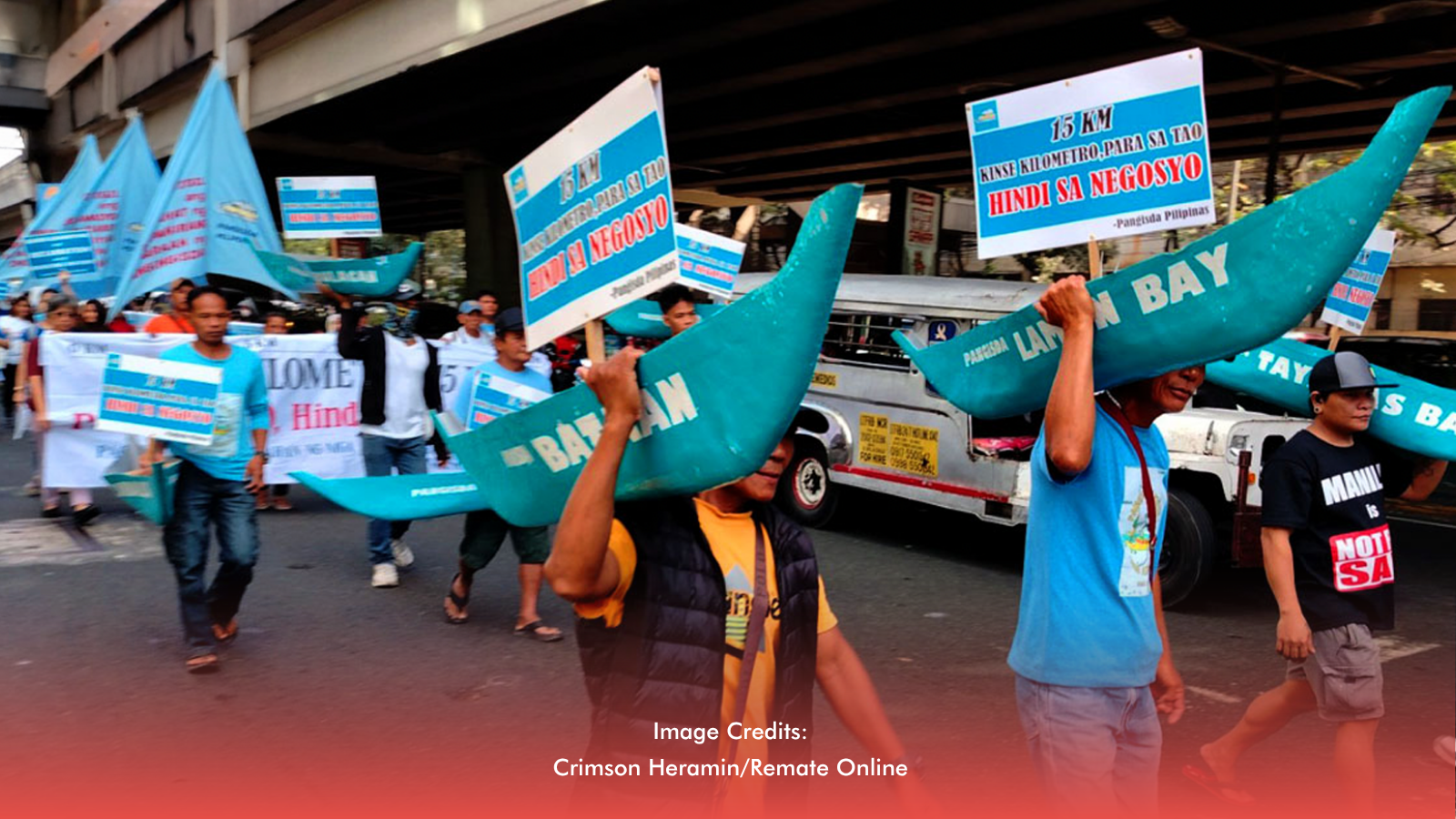In a peaceful yet powerful demonstration, small-scale fishermen across coastal provinces recently launched “Kinse Kilometro Para sa Tao”—a protest urging stricter enforcement of the 15-kilometer fishing zone reserved for municipal fishing. Their message: protect the sea, protect the people.
This protest is not a call to end commercial fishing. Instead, it highlights a growing tension in Philippine waters: the overlap between industrial fleets and small fishing communities fighting for survival.
RELATED: [Concerns Rise As Solar Farm Threatens Fishermen’s Livelihoods On Laguna de Bay]
The Struggle of Small-Scale Fishers
Over 80% of the Philippine fishing sector is made up of municipal or small-scale fishers—families who depend on daily coastal catch using basic gear and wooden boats. Under the Fisheries Code, the first 15 kilometers from the shore are legally theirs to operate in. But many now say they’re being edged out.
Large commercial vessels, equipped with sonar, steel hulls, and large nets, are allegedly entering these zones illegally or under loose local agreements. The result? Fish stocks are depleted before small fishers even get a chance. With lower catch, rising fuel costs, and limited access to credit or insurance, many are being pushed deeper into poverty.
Damage Below the Surface
Beyond the economic struggle, a bigger risk is lurking beneath the surface.
Commercial fishing—especially with large trawl nets—can damage coral reefs, seagrass beds, and spawning grounds. These ecosystems are crucial for maintaining fish populations and marine biodiversity. Without proper regulation, overfishing in coastal areas could lead to long-term ecological collapse, leaving future generations with empty nets and degraded waters.
As climate change adds more pressure—rising sea temperatures, coral bleaching, and unpredictable weather—protecting coastal ecosystems becomes not just an environmental issue, but a matter of national food security.
When Coral Reefs Disappear
While not the focus of the protest, there’s also an indirect effect on tourism.
Pristine coral reefs and thriving marine life are cornerstones of the Philippines’ beach and dive tourism industry. When fishing gear damages underwater habitats or sediment clouds coastal waters, eco-tourism destinations suffer, affecting both local economies and the country’s global reputation as a tropical paradise.
Striking a Balance
The “Kinse Kilometro Para sa Tao” protest is a call for balance. It asks: Can we protect the rights of small fishers without vilifying commercial operators? Can we enforce sustainable practices that benefit both people and the planet?
At the heart of this issue lies a deeper truth: coastal communities, marine ecosystems, and food security are all interconnected. If we fail to protect one, we risk losing them all.
RELATED: [Negros Occidental Blue Crabs Production Get Boost From Public-Private Partnership]








